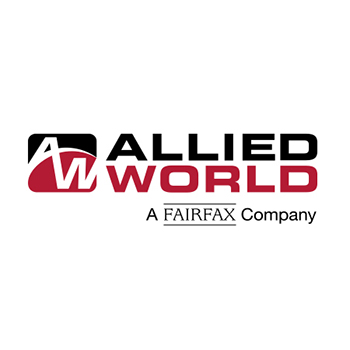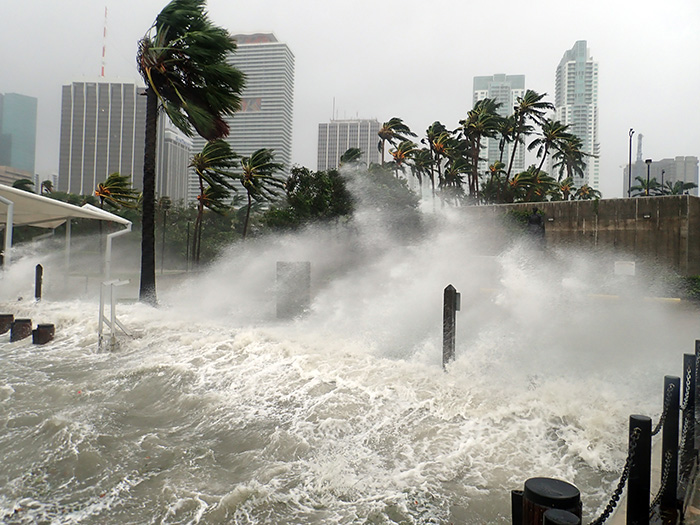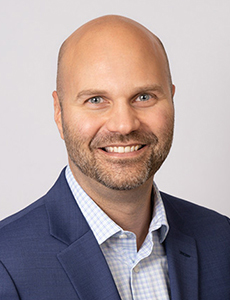Risk Scenario
How Remote Work Can Shatter Collaboration and Increase Employment Liability Risk
Disclaimer: The events depicted in this scenario are fictitious. Any similarity to any corporation or person, living or dead, is merely coincidental.
PART ONE: GO GREENER, GO BIG
Gaia Unlimited is an environmental engineering firm located in Providence, Rhode Island.

It was formed in 2012 by two star students, Bill Shepard and Frances Patton, graduates of the highly ranked environmental engineering program at Tufts University.
Its name, Gaia, references the Greek goddess of the earth. Sustainability and an aggressive, progressive approach to mitigating pollution and battling climate change and other environmental ills are central to its mission.
Gaia has no problem recruiting top-level, passionate professionals, many of them graduates of elite university programs, who buy into the company’s stated mission of being a good partner to the corporate world but being an even better partner to the planet and the people and other species on it.
The team grows rapidly, from eight in its initial startup to 80 professionals in just seven years. From its origins in the Northeast, by 2019 Gaia’s footprint spreads throughout the U.S. as it opens additional offices in Champagne, Illinois and San Francisco, California.
Then in March of 2020, it happens. A global pandemic pulls the rug out from under business operations and life in general as we know it. Gaia’s team, which always prided itself on its collegial office culture, goes entirely remote.
Concentrating as they are on keeping the business afloat, Bill Shepard, Frances Patton and the rest of the Gaia leadership team knuckle down and play to their strengths. Using their charisma and intellect, they rally their employee base, doing an excellent job, or so they think, of keeping their team engaged and productive.
By the end of 2020, they have managed to preserve their business, although the economic slowdown caused by the pandemic leaves them at year end with $60 million in revenue, which represents a flat result when compared to 2019, where they also notched $60 million in revenue.
“Well, we survived 2020,” Shepherd says to Patton as they commiserate on yet another Zoom call in the first quarter of 2021.
“We did,” she says. “But I don’t know how many more Zoom calls I can do and keep my sanity,” she adds.
PART TWO: BUT WAIT A MINUTE
By the end of 2021, Gaia’s leadership can congratulate itself on being far more flexible and resilient than many of its competitors.

It’s held on to key pieces of business with major fuel and chemical producers as well as substantial players in agriculture and is even growing the business again.
But members of its management team are starting to show signs of burnout and stress from the challenges of managing teams remotely, day in and day out, for years now, on telecommunications platforms. Management is also noticing some cracks in employee engagement – missed communication, shortcuts taken with basic client tasks, a general lack of detail in project notes – that it attributes to poor remote training.
“I have got to get some people back in the office, at least two days a week!” says Dean Levy, one of the company’s most respected and productive division leaders who leads the Champagne, Illinois office, in just one example of the kind of feedback Gaia’s leaders are getting from managers on a weekly basis.
But here is the rub. As the team worked remotely, and management focused on keeping the business intact fully, 60% of Gaia’s team moved to locations hundreds of miles away from its three offices.
Key West, Florida, Woodstock, Vermont and Austin, Texas are just some of the more lifestyle-positive geographies members of the energetic Gaia team gravitated to as the pandemic unfolded. The managers do get their wish, though, and for those employees who still live a commutable distance to Gaia’s offices, three days in the office becomes a mandated reality for 40% of the team.
Shortly after this mandate, an unintended consequence becomes a divide between those that must go into the office – and those that do not. Gaia is now far from being the cohesive, motivated cohort of thought leadership for which it became known in 2012 through 2019.
A group of about two dozen remote workers form a chat on Teams that they don’t tell any of their managers about. They call their chat, “Sequoia Strong.”
On the “Sequoia Strong” chat, they create and cultivate their own culture, one that is steadfastly opposed to ever walking back into an office again.
“Cubicles are for lab rats. Not ever going back!” writes one member of “Sequoia Strong,” a comment that is received with a goodly number of “thumbs up” and “applause” emojis from other chat members.
As with small companies, nothing remains a secret for long. Management get wind of the chat group and their concerns. Trying to act swiftly, management and their small human resources team work overtime to formulate policies that can possibly address the exposures a divided workforce presents. Lacking any experience or precedent in this area, the team is pressed to find risk management resources to guide them appropriately.
They even reach out to their insurance broker to see if there is a program available that can help. After a robust review of their Directors & Officers (D&O) and Employment Practice Liability (EPL) policies, it’s determined that their cost-conscious purchase left them short.
“The hard truth is that your EPL and D&O coverage just could not have anticipated some of the exposures remote work is bringing your way,” the broker says.
PART THREE: SEISMIC EVENTS
The fissure that turns Gaia’s EPL worries into an earth-shaking series of events emanates from the office of the well-meaning but somewhat impulsive Dean Levy.
Levy has begun to exhibit preferential treatment towards employees that are putting in face time in the Champagne office, versus those that have not returned to the office at all and have no plans to.
Among a set of six employees under his supervision that were hired in 2016, Levy lobbies in early 2023 for promotions and substantial raises for three employees who did not take off for distant lands during the pandemic and who are in the office at least three days a week, if not more.
Three additional employees, who did move far away during the pandemic, receive only cost of living adjustments and are passed over for promotion. The company’s Achilles’ heel is that, on paper, the performance of the three steadfastly remote employees is not discernible from those that were putting in office time.

The promotions were announced on Feb. 15, 2023. With their outrage fueled by members of their “Sequoia Strong” chat, the three aggrieved employees lawyer-up and file an employment discrimination lawsuit against the company on March 2 of that year, alleging that they are victims of remote employee discrimination.
Within a couple of weeks, five more Gaia employees join the suit, also alleging some form of remote employee discrimination.
The plaintiffs’ attorneys are successful in having the case filed and heard in Cook County, Illinois, a jurisdiction long considered to be “plaintiff friendly.”
Gaia ends up being hit with a $10 million settlement that exceeds its EPL and D&O limits by more than $7 million.
The impact to the company is dramatic. In addition to the financial implication, Gaia lost key employees and major customers as a result. Once a $60-million-a-year company, Gaia is now a shell of what it used to be in the environmental engineering space. &
![]()
Risk & Insurance® partnered with Allied World to produce this scenario. Below are Allied World’s recommendations on how to prevent the losses presented in the scenario. This perspective is not an editorial opinion of Risk & Insurance.®.
Underestimating the cost of dealing with employment-related charges can lead to devastating financial consequences. Employment Practices Liability coverage provides protection for an employer against claims made by current, former or prospective employees for discrimination, wrongful termination, sexual harassment, and other employment-related allegations, like the scenario outlined here.
What’s more, employers, especially those with smaller or overextended HR departments, could benefit from value-added risk management resources. Allied World offers clients access to the Allied World Workplace Solutions portal. This complimentary, industry-leading support is designed to help insureds mitigate or prevent losses. Policyholders receive access to valuable resources including:
- Toll-Free Employer Helpline offering confidential advice and best practices counsel on HR and employment law issues
- Online Client Portal
- Employee Handbook Builder
- Online Harassment Training
Allied World is a long-standing carrier with an experienced claims team that will be there when most needed – in the event of a claim. Given the current economic climate, it is no longer a matter of whether an employer will suffer an EPL claim but rather when and for how much.
To learn more about Allied World, please visit https://alliedworldinsurance.com/products/usa-management-financial-lines/.
Coverage will be underwritten by an insurance subsidiary of Allied World Assurance Company Holdings, Ltd, a Fairfax company (“Allied World”). Such subsidiaries currently carry an A.M. Best rating of “A” (Excellent), a Moody’s rating of “A2” (Good) and a Standard & Poor’s rating of “A” (Strong), as applicable. Coverage is offered only through licensed agents and brokers. Actual coverage may vary and is subject to policy language as issued. Coverage may not be available in all jurisdictions. © 2023 Allied World Assurance Company Holdings, Ltd. All rights reserved.











